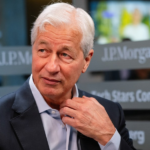Francois Villeroy de Galhau, a prominent member of the European Central Bank’s (ECB) Governing Council and Governor of the Bank of France, shared his views on the current global economic landscape during a public appearance on Friday. According to a report by Reuters, Villeroy indicated that the risk of rising inflation as a result of ongoing international trade tensions remains weak — and in fact, could even exert downward pressure on inflation.
Villeroy’s assessment comes at a time when markets and policymakers are closely monitoring the impact of escalating trade disputes, particularly between major economies like the United States and China, on global growth and inflation dynamics. While protectionist policies are generally thought to create inflationary pressures by raising costs for businesses and consumers, Villeroy suggested that the broader economic slowdown triggered by these tensions might instead dampen price increases.
“The risk to inflation from current trade tensions seems weak and might even push inflation lower,” he stated, emphasizing that weak global demand, not higher costs, is likely to dominate the effects of the current trade environment.
On Trump’s Criticism of Fed Chair Powell
Villeroy also weighed in on recent political developments in the United States, notably commenting on President Donald Trump’s repeated public criticisms of Federal Reserve (Fed) Chairman Jerome Powell. Trump has accused Powell of moving too slowly in cutting interest rates to support the U.S. economy.
Defending Powell, Villeroy remarked, “The Fed’s Powell is doing his job very well because he is telling the truth as it is.” He stressed that central bank independence is a cornerstone of sound monetary policy, and political interference can undermine economic stability. According to Villeroy, Trump’s attacks on Powell are misplaced and potentially harmful.
“Monetary policy decisions must be based on objective economic analysis, not on political pressure,” Villeroy added, aligning with a broader consensus among central bankers worldwide regarding the importance of safeguarding institutional independence.
Market Reaction
Despite the importance of Villeroy’s remarks, the immediate reaction in the foreign exchange markets was muted. The EUR/USD currency pair showed little movement following his comments. As of the latest trading, the euro was seen marginally higher against the U.S. dollar, hovering around 1.1375, suggesting that traders had largely priced in these views or were focused on other factors driving the market.
Conclusion
Villeroy’s statements highlight a critical perspective on the current interplay between trade policies, inflation expectations, and central bank independence. As trade tensions continue to pose a significant uncertainty to the global economy, central banks like the ECB and the Fed remain vigilant but cautious, emphasizing data-driven policies over reactionary moves. Meanwhile, the broader market appears to be adopting a wait-and-see approach, with limited immediate volatility in response to these ongoing developments.









